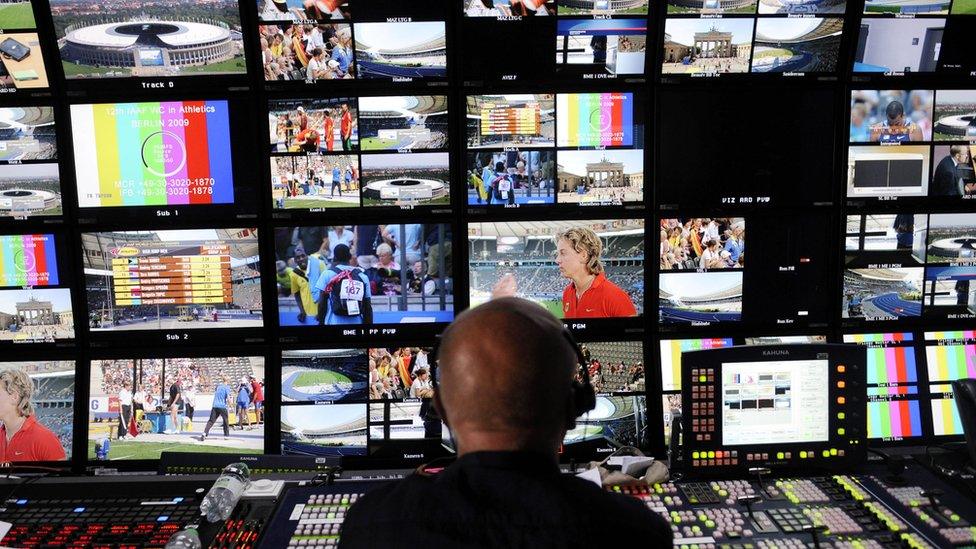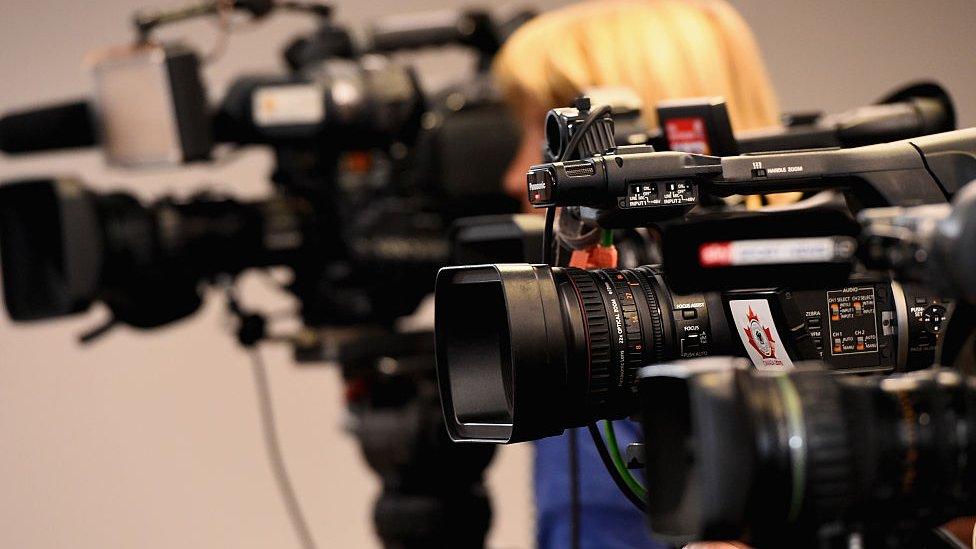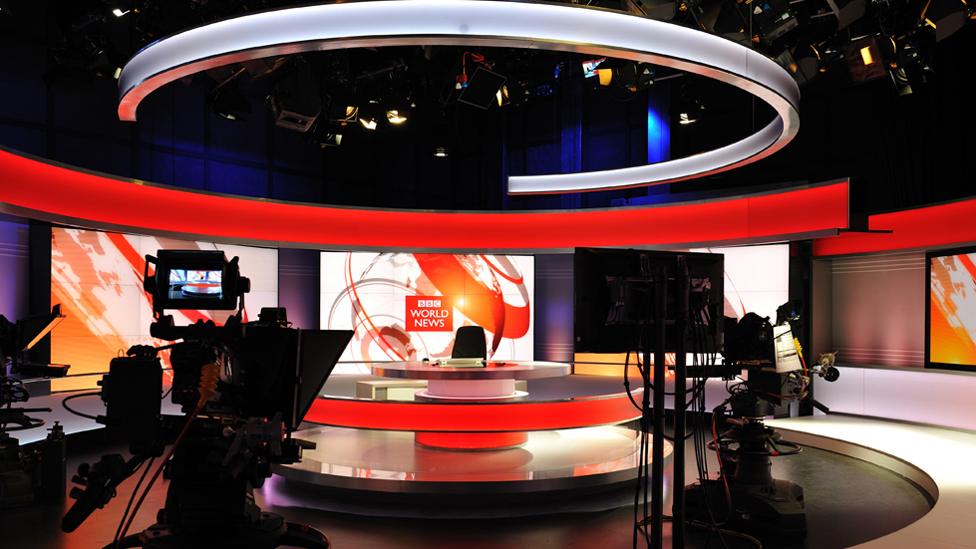Brexit and broadcasting: Licensing in limbo?
- Published

Hundreds of international TV channels that are licensed in the UK may have to seek licensing elsewhere in the EU after Brexit if they want to keep broadcasting across Europe.
The government has appealed for broadcasting to be included in a future free trade agreement with the EU - but that has never happened before.
"On broadcasting, we recognise that we cannot have exactly the same arrangements with the EU as we do now," said the Prime Minister Theresa May in her speech at the Mansion House in March. "[But] relying solely on precedents will hurt consumers and businesses on both sides."
Under current rules, a company based in the UK can be licensed by the UK regulator Ofcom and broadcast into every EU member state, and vice versa, because they're all part of the EU single market.
And a majority of multinational broadcasters have their European operations based in the UK.
Touting for business
Ofcom says it has licensed just over 400 channels for broadcast across Europe, but industry sources say in reality the figure is even higher than that.
The Mavise database, linked to the Council of Europe, puts the number of channels affected at about 650.
But after Brexit, as things stand, none of these channels will be able to rely on UK licensing for access to the rest of the EU, once the UK has left the single market.

Ofcom says it has licensed just over 400 channels for broadcast across Europe
Unless the UK can negotiate a special deal, as part of a future free trade agreement, all of them would have to find another EU country in which to get a licence.
Among the channels affected are all the well-known names, including Disney, Discovery, 21st Century Fox and the BBC's own international channel, BBC World News.
Plenty of countries have been touting for any business leaving the UK: among them Ireland, Germany and the Benelux countries, Belgium, the Netherlands and Luxembourg.
The criteria you have to fulfil to get a licence vary from country to country, and depend on a variety of circumstances.
In some cases, companies will have to move part of their workforce to the EU; in others, they will be able to rely on what are known as "secondary technical criteria" which allow them to be licensed in a country from where their satellite signal is uploaded.
But the concern in London is that if hundreds of channels have to be licensed elsewhere, it could have an impact on the UK economy.

BBC World News is the BBC's international news and current affairs television channel
It could also mean a loss of income for Ofcom, which currently charges channels a percentage of their pan-European revenue to licence them.
And some companies may decide to move some of their production or management teams to other countries.
"You can debate what can happen on day one, but the real question is what happens to the industry five or 10 years down the road," says Adam Minns, the executive director of the Commercial Broadcasters' Association (Coba).
"What happens to future growth?"
A report commissioned by Coba estimates that the international broadcast sector was worth just over £1bn to the UK economy in 2017, if you take into account all sorts of things like content commissioning, post-production, transmission and marketing.
A lot at stake
But there is another reason for the government to be keen on including broadcasting in talks on a future trade deal.
Being a major international centre for the dissemination of news, information and entertainment is an important element of "soft power" that the UK needs to retain after Brexit.
"Television is part of an unrivalled media eco-system that has developed in Britain over many years," says Simon Spanswick, chief executive of the Association for International Broadcasting.
"It forms the backbone of the UK's soft power - something that's admired across Europe and around the world.
"This is, we believe, one reason why the UK is working to protect its position as the prime broadcasting centre in the EU through securing passporting rights for channels that operate from the UK."
In other words, there's a lot at stake.
The UK - and London in particular - is likely to remain a creative broadcasting hub come what may, especially for the creation of content.
But it's no surprise that the government wants to resolve the licensing issue if it can, arguing that everyone in Europe benefits from London being a world-class media centre.
A similar argument is made in the debate over financial services, but other EU countries are asking why they should allow the UK to be a special case, once it has left.

